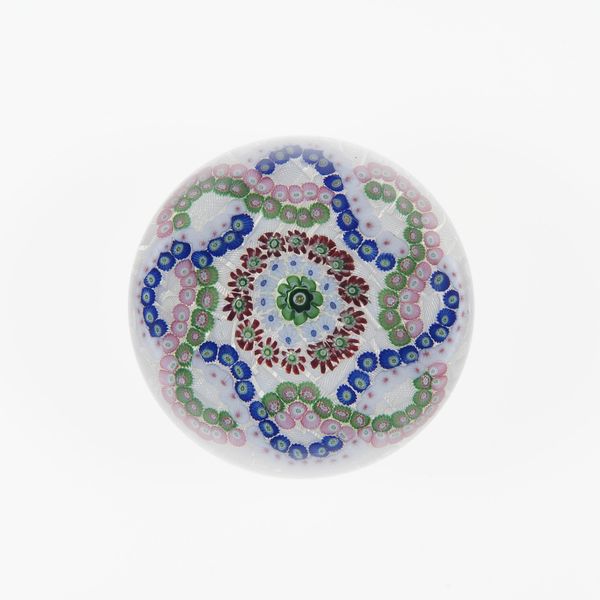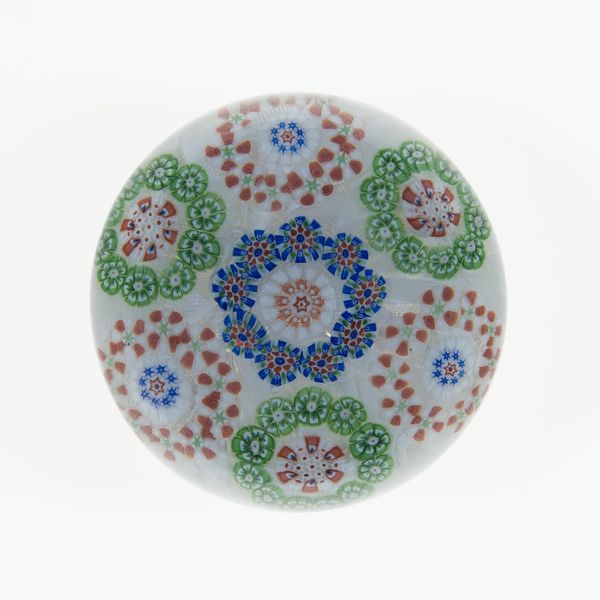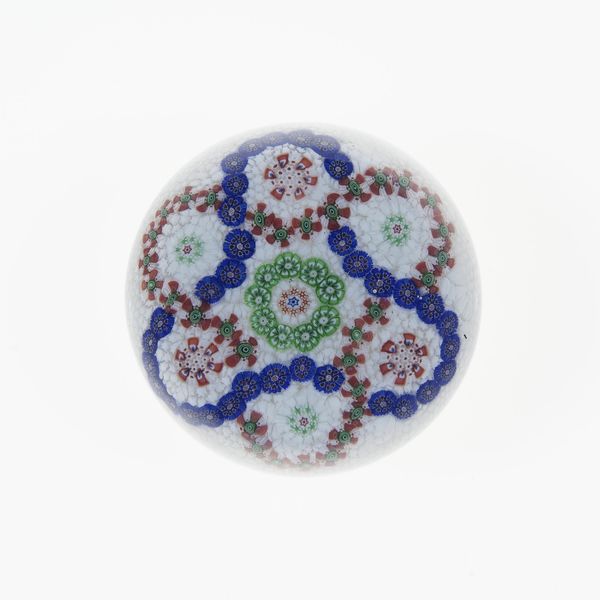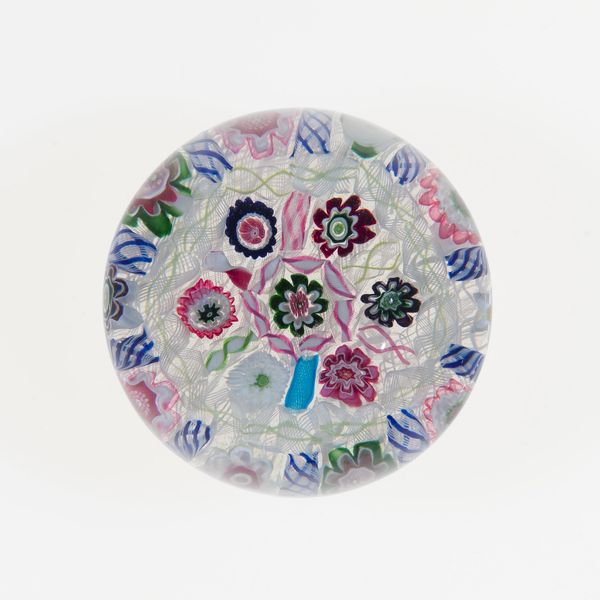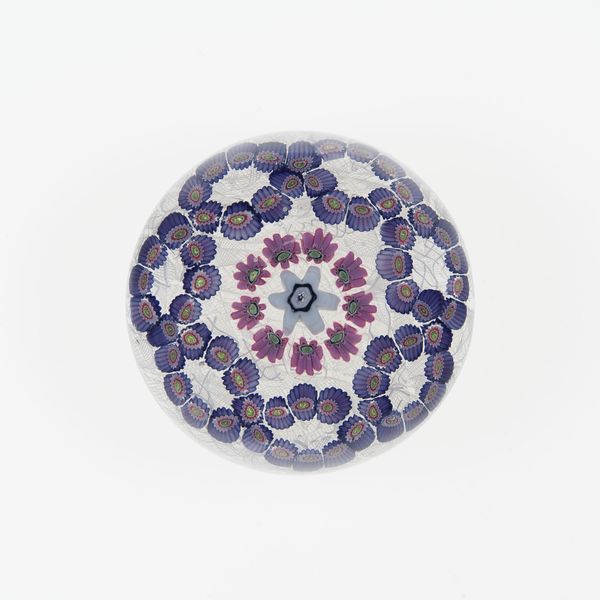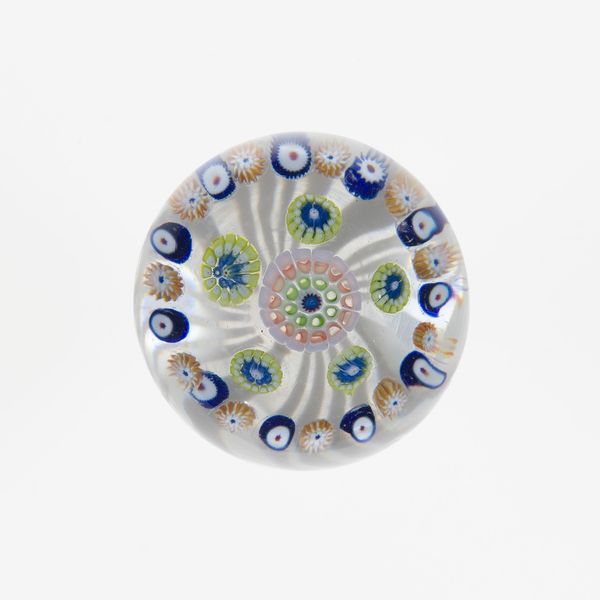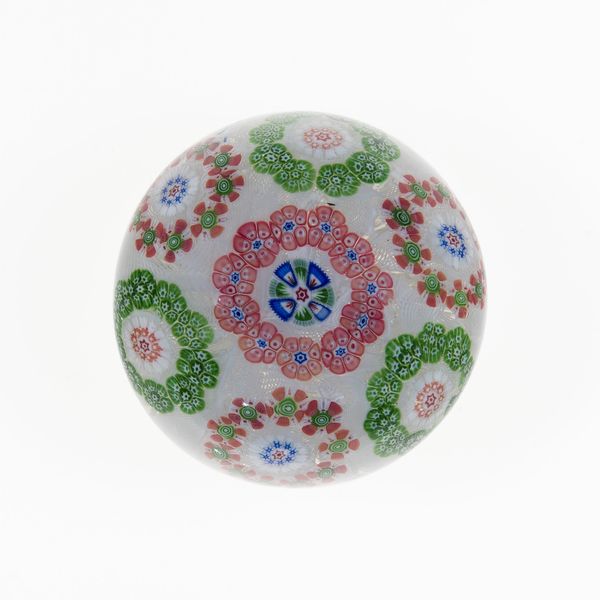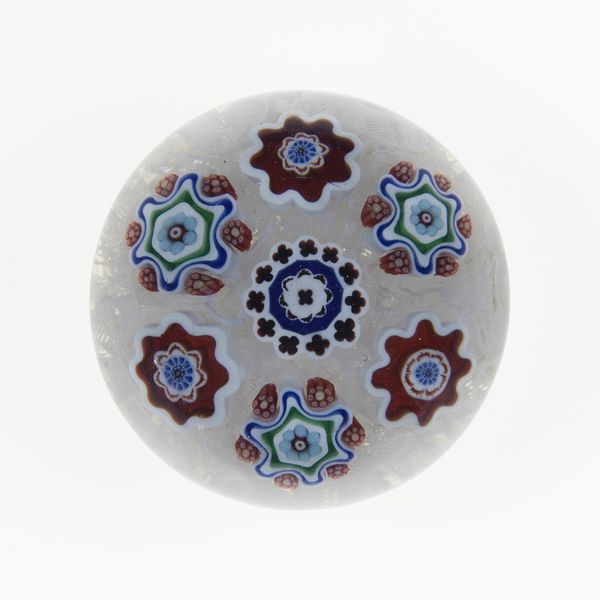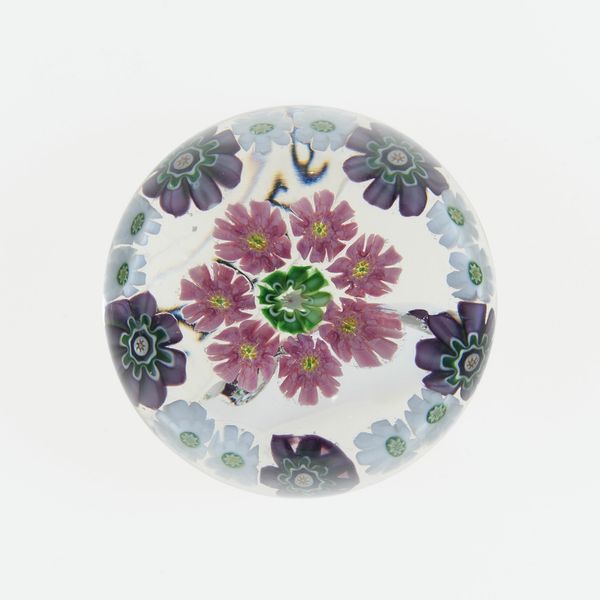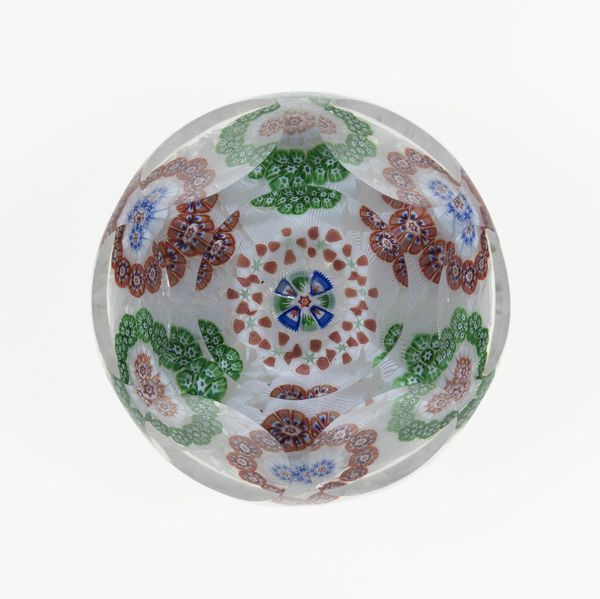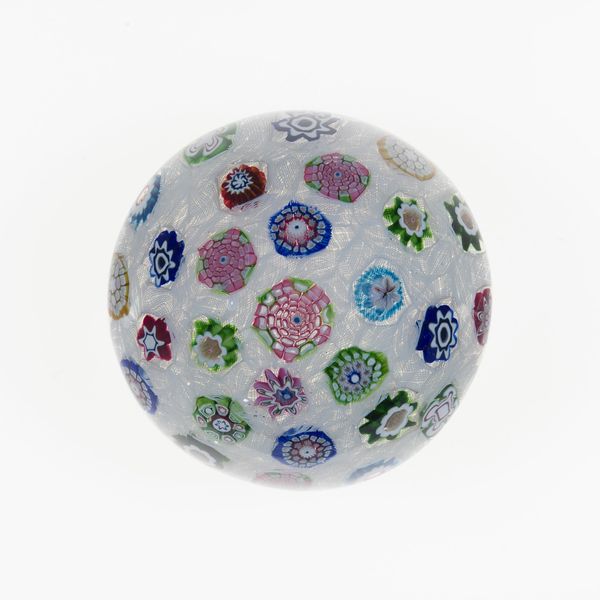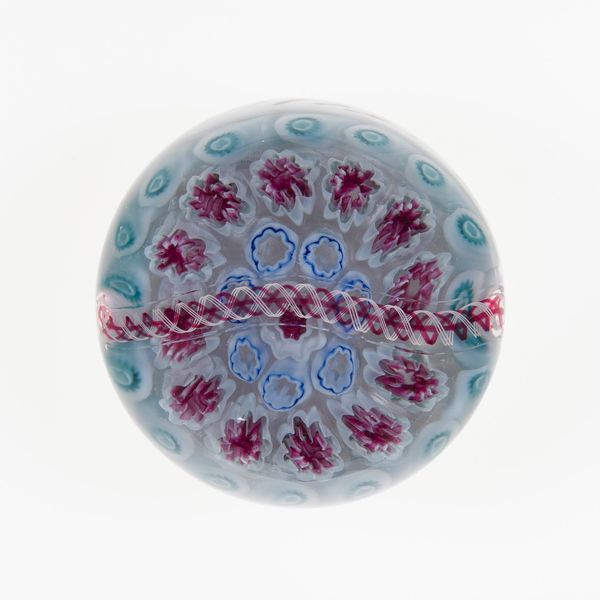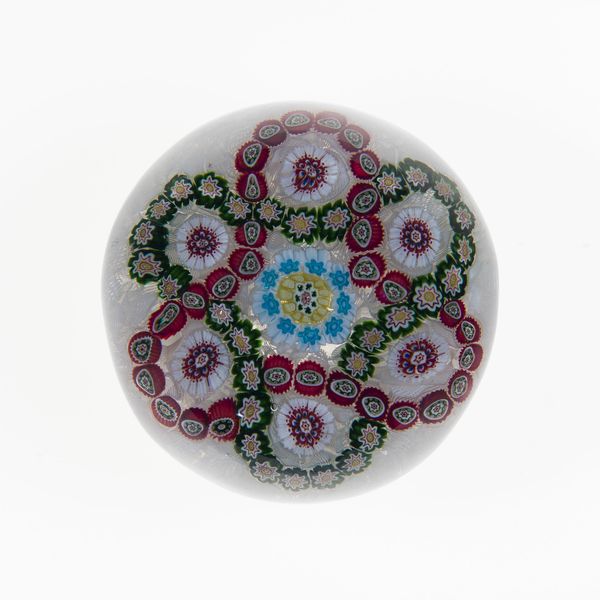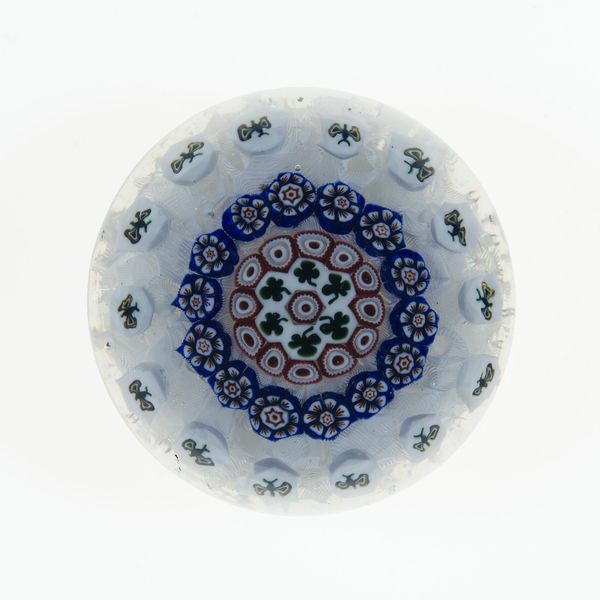
paper, glass
#
product photograph merchandise
#
clear focal point
#
circular oval feature
#
decorative element
#
egg art
#
3d printed part
#
round design
#
paper
#
glass
#
white focal point
#
ceramic
#
round circular shape
#
decorative-art
Dimensions: Diam. 6.4 cm (2 1/2 in.)
Copyright: Public Domain
Editor: Here we have "Paperweight," a glass object made around 1845 to 1855 by the Clichy Glasshouse. It's visually captivating; I am curious to hear about the intricate arrangement of the design encased in glass. How do you interpret this work from an art historical perspective? Curator: Focus, instead, on the object's internal visual relationships. Note the concentric bands that dictate the viewer's gaze inward. Observe how the glass sphere functions as a lens, distorting and amplifying the internal components. Editor: The roundness of the whole form creates such an appealing, compact effect, doesn't it? Is there something to read in the relationship between this object's shape and the patterns inside it? Curator: Indeed, the pattern within mimics the outer form, emphasizing an overarching sense of unity. The limited color palette serves not just as ornamentation but enhances the form's structural design by contrasting different textures against a transparent background. Look at the distribution of visual weight; consider its balance. Does it appear harmonious, or is there a deliberate disruption? Editor: It feels incredibly balanced, especially given the density of the pattern. It's almost mesmerizing. Is the clear glass just functional or does it affect how we engage with what is inside? Curator: It’s less a transparent barrier than a carefully chosen aesthetic element; glass is the enabler of a kaleidoscopic viewing experience that enhances the structure. Did this exploration modify your initial thoughts regarding this object? Editor: It certainly did; it makes me realize how much of its effect relies simply on careful use of material and repetition, less about narrative. Curator: Exactly, our appreciation grows when we emphasize these critical features of its internal framework, moving us past simpler considerations.
Comments
No comments
Be the first to comment and join the conversation on the ultimate creative platform.
